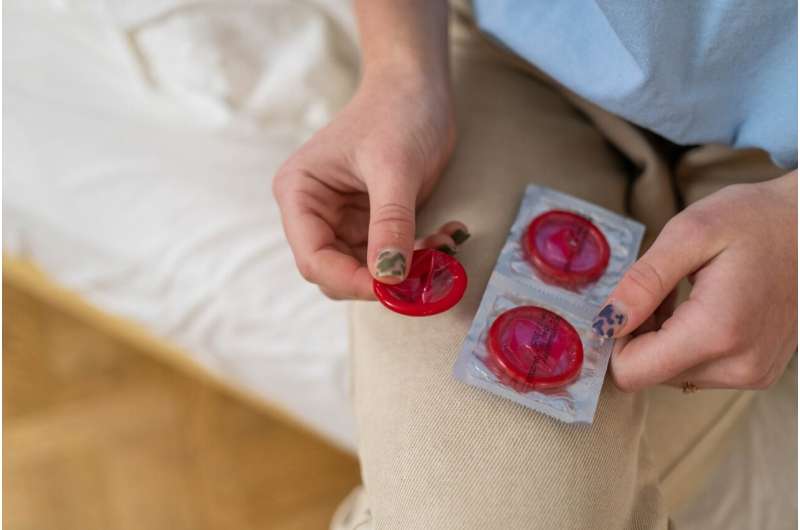This article has been reviewed according to Science X's editorial process and policies. Editors have highlighted the following attributes while ensuring the content's credibility:
fact-checked
peer-reviewed publication
proofread
University students view sexual health campaigns as bleak and prejudiced, according to study

The period between post-adolescence and maturity is when most people engage in highest levels of sexual activity. Sex may not be safe and healthy at that stage in a person's life, which makes it a risk factor for morbidity and mortality due to sexually transmitted diseases or infections.
In order to study the difficulties related to sexual issues encountered by young university students, a team of researchers led by the Universitat Oberta de Catalunya (UOC), the Universidad de Santiago de Chile, the Universidad Bernardo O'Higgins and the Universidad del Desarrollo de Chile conducted a study to examine what hampers and what fosters the development of healthy sexual behaviors.
"We tried to find out what hinders and what helps promote healthy sexual behaviors among young university students, and propose specific actions to improve promotional campaigns," said Manuel Armayones, lead researcher at the UOC eHealth Center's Behavioral Design Lab, member of the Faculty of Psychology and Education Sciences and lead author of the study.
The study, published in BMC Public Health, uses social research systems and theoretical models of behavioral design to contribute to improving health promotion campaigns in different settings.
Barriers to healthy sexual behavior
The researchers used group dynamics to identify the aspects that act as barriers or facilitators of safe sex behaviors. The barriers include a lack of information, social stigma and a lack of skills for engaging in safe sexual relations.
In addition, the barriers perceived by young people include the fact that sex education is focused on biological aspects or that awareness and promotion campaigns are based on very bleak content, and contain prejudices and misinformation regarding the use of internal or vaginal condoms. "The participants also identified barriers to obtaining condoms at health centers and a lack of access to preventive screening at university, among other issues," explained Armayones, who has a Ph.D. in Psychology and is an expert in behavioral design at the UOC.
"We believe that what is most important for promoting healthy sexual behaviors is comprehensive sex education, access to sexual and reproductive health services, and social and family support," said Giuliano Duarte, associate professor at the Universidad de Santiago de Chile, and a Ph.D. student in the Behavioral Design Lab.
This promotion needs to foster easy access to dispensers of internal and external condoms, and to health centers for testing for various sexually transmitted diseases, including HIV. "Campaigns that include both 'how' and 'what' to do are needed to make sexual behaviors safer, campaigns designed to make it easier for them to be safer," said Duarte.
Significant but insufficient progress at Spanish universities
According to the latest CYD Ranking, an indicator which measures the performance of the Spanish university system, 57% of Spanish universities have implemented sexual and reproductive health services or programs. Hundreds of universities all over the world have adopted and introduced these sexual health programs in the last decade. Although these services have made significant progress, there is still room for improvement.
The authors propose strategies such as implementing comprehensive sex education programs at universities to encourage safe sexual behaviors. This includes creating spaces to discuss issues related to sexuality where accessible and confidential sexual and reproductive health services are always available to students.
The research team concluded the study by pointing out that digital technologies could be a crucial tool for reaching a wider and more diverse audience. As examples, they suggest using mobile applications designed in collaboration with young people and creating specific focus groups on messaging systems, in addition to campaigns combining audiovisual material designed collaboratively by young people for platforms such as TikTok or Instagram.
More information: Manuel Armayones Ruiz et al, Barriers and facilitators for safe sex behaviors in students from universidad de Santiago de Chile (USACH) through the COM-B model, BMC Public Health (2023). DOI: 10.1186/s12889-023-15489-y



















